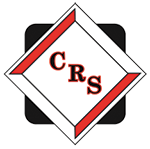Clinical data management is one of the crucial activities in the healthcare sector. The process ensures that patient data is collected, stored, and analyzed in a manner that supports medical research, clinical trials, and patient care. Clinical Data Management Solutions are developed to streamline this process to make it more efficient and accurate. If you’re interested in the field, here are the most important skills required to be a success in it.
In this blog, we will discuss what are the skills you need for a clinical data management job.

Attention to Detail
In clinical data management, accuracy is everything. One small mistake can have serious impacts on patient care and research outcomes. Data managers need to ensure that all patient information is correctly recorded and interpreted. This includes verifying data entry, checking for inconsistencies, and ensuring compliance with medical record abstraction guidelines. Being detail-oriented is one of the most important skills you’ll need in this role.
Data Management Systems Know-How
The storage and management of patient data form an important aspect of clinical data management. In fact, using specific software and systems is critical to storing and managing information. The health industry utilizes many clinical data management systems, among other tools, to store data. It can be organized and allow for monitoring progress as well as interpretation of complex information. Clinical Data Management Solutions, for instance, in Cardiac Registry Support, delivers data that has simplified the whole process of handling clinical data, keeping data intact and secure at all times.
Understanding of Data Security and Compliance
Data security is considered a top priority in healthcare. It is of utmost importance for clinical data managers to be conversant with HIPAA (Health Insurance Portability and Accountability Act) and so on. In fact, a very important role is to make sure that all patient data is kept private and secure. A clinical data manager must adhere strictly to compliance standards and ensure all data handling meets legal and regulatory requirements.
Medical Record Abstraction Skills
Medical record abstraction can be defined as the process of deriving relevant information from patient records to be used in clinical studies or patient care. This skill is very important for clinical data managers, as they should be able to derive essential information from different sources, such as medical histories, lab results, and treatment plans. Knowing how to abstract medical records is critical because this ability will ensure all appropriate data capture is done efficiently and accurately, which is a critical input for both clinical and research decision-making.
Remote Data Abstraction Skills
Healthcare continues its journey toward digital transformation with remote data abstraction; that is, data can be reached and abstracted anywhere without the need for a physical location. Clinical data managers should be able to perform abstraction and analysis of data using remote data abstraction tools. These tools ensure faster and more flexible workflows with better decision support at the end. For example, Cardiac Registry Support offers remote data abstraction services to help healthcare providers access and manage clinical data from a distance.
Analytical Skills
The clinical data manager needs to analyze large amounts of data for trends, patterns, and insights that may lead to a better medical decision. Strong analytical skills are needed in order to understand complex clinical data and translate that into meaningful results. Whether assessing the effectiveness of a treatment or tracking the progress of a clinical trial, it is crucial to make sense of the data. Understanding how to use data analysis tools and techniques will help you make well-informed decisions and improve healthcare outcomes.
Problem-Solving Abilities
In clinical data management, problems will arise; whether it is the data or problems with the collection of data. A strong ability to solve problems will ensure that challenges are solved quickly and effectively. From correcting errors in the data to solving problems in collecting data, thinking critically and coming up with solutions on the spot is an asset for success.
Communication Skills
Clinical data managers work with a variety of stakeholders, including medical professionals, researchers, and regulatory bodies. Strong communication skills are vital for sharing data findings, discussing issues, and collaborating with team members. You’ll need to be able to explain complex data in simple terms to people who may not be familiar with the technical aspects of data management. Clear, concise communication ensures that everyone involved understands the data and its implications for patient care or research.
Project Management Skills
Typically, one may have to manage more than one project under clinical data management. Whether it is the management of a clinical trial or even managing any process of data collection, staying focused and keeping track of deadlines and deliverables is a must. This would ensure strong project management skills help prioritize the tasks, allot all resources efficiently, and ensure that each aspect of the project is completed within the provided timeframe and is up to par.
Teamwork and Collaboration
Clinical data managers never work in isolation. They form part of a team that consists of healthcare providers, researchers, IT professionals, and other stakeholders. A good team member who can share responsibilities and coordinate with others for effective collaboration is essential in this position. For instance, when gathering data on the health status of a patient, one has to involve the medical team. Alternatively, if a technical issue arises, one needs to deliberate and coordinate with an IT professional.
Getting Together
A clinical data management career is rewarding and challenging at the same time. Success in this field requires skills such as attention to minute details, strong communication, and analytical skills. Mastering skills such as medical record abstraction, remote data abstraction, and understanding Clinical Data Management Solutions can really make a difference in healthcare.
Cardiac Registry Support is a great company that provides unique solutions for assisting clinical data management, thus empowering healthcare professionals with the capability of improving how clinical data is being collected and handled. Whether you are new to this industry or looking to advance your career, investing in the right skills and tools will set you up for success in clinical data management jobs.


